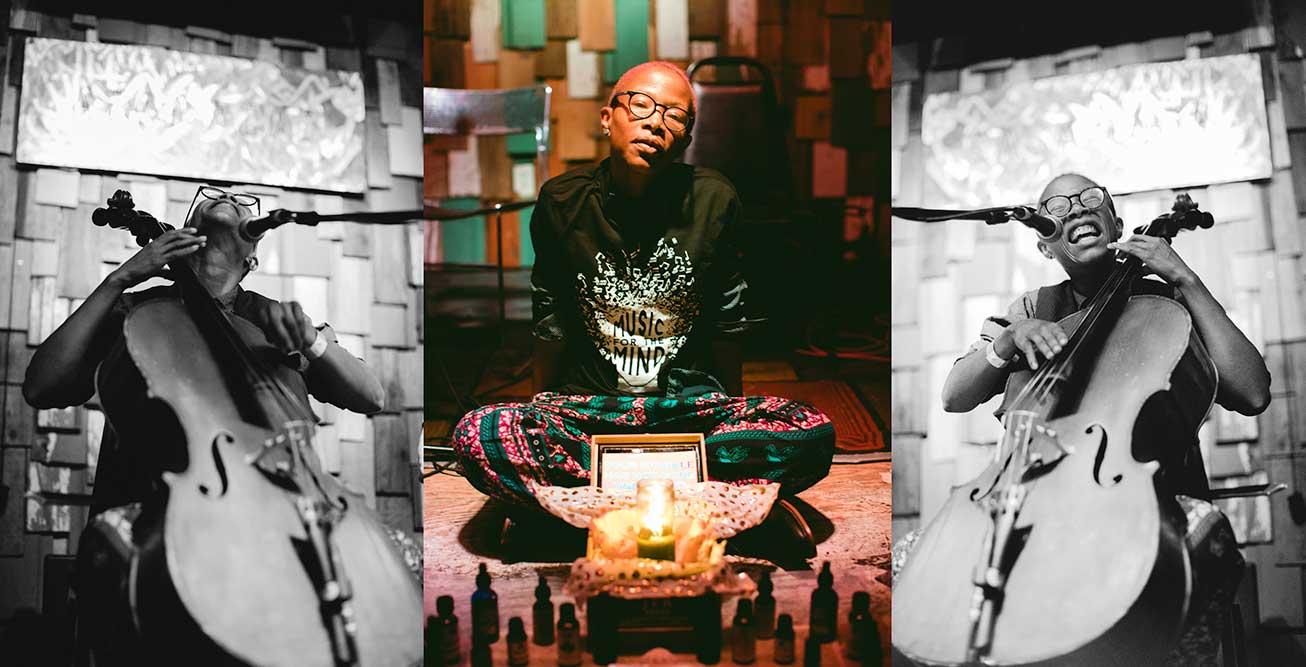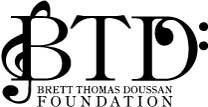Spirit McIntyre

Spirit McIntyre is a New Orleans-based cellist, vocalist, songwriter, wellness advocate and sound healer, who has used their gender identity, musicianship, empowerment practices and healing work to uplift minority, LGBTQ, and women-focused communities for over a decade. Spirit is also one-half of musical duo Spirit & Sparrow, which features multi-talented musician, and BTD Music for the Mind alumni, Kei Slaughter. With a reputation for honest, accountable, and expansive creative work, Spirit has been featured on numerous national stages both as a musician, and as a speaker. Read on to learn more about Spirit’s thoughts on music, mental wellness, and more!
How would you describe your music in three words?
Healing. Earthy. Ancestral.
What was your earliest musical experience that inspired you to pursue music professionally?
I started playing classically, on the cello, when I was 11. My sister, who was 9, played the violin. There’s a way with classical music, like in the experience of training in an orchestra, where even though you may not be getting paid, you are expected to demonstrate a certain level of professionalism, and discipline. So, the shift from doing that type of training to performing for money was somewhat seamless for me. Growing up in Maryland, and being near the D.C. area, my sister and I would get paid to play at political events, weddings, gallery openings, things like that. So, for me, I don’t know that there was a big moment of deciding to do music professionally, because I was already in this world from an early age. While I don't necessarily do only classical music now, those experiences in my childhood definitely launched my music career trajectory.
In addition to being a trained musician and performer, you have a background as a healing practitioner working from a holistic framework. How do both the musical aspects, and healing aspects, of your personal journey weave together?
In Reiki, the term loosely translates to universal energy. Music can feel like a form of energy as well, so I’ve noticed over my time practicing Reiki, that it’s much like music. Reiki helps people to find their own natural ability as a self-healer, and just like music, one does have a natural affinity for harmony but maybe isn’t aware of concept until it’s made clear for them. As one gets more information, they gain more understanding. And, I’ve found that during my time practicing Reiki, my ability to really hear, to listen, has increased.
For example, I might have a client telling me about what’s happening in their life. I’m listening not only to what they’re actually saying, but what is going unsaid. Someone might tell me they’re having an issue with their throat, maybe the act of talking is uncomfortable. In that space, I might also be exploring if there is mental confusion related to the throat discomfort, maybe inability to clarify thoughts, and how time can build this issue into a physical display of the internal problem. I might ask, “Isn’t it interesting that your throat is bothering you, and yet you haven't had any physical damage to your throat?” So we might work in a session on rebalancing their energies to clear the throat, to clear the chest, to ground them. It shows how connected every part of our being really is. And so, the practice of Reiki has helped me to listen in a way that I wasn't quite able to do when I first started working with it. And that feels like a direct connection of music and being able to hear what people are saying, and not saying, with their instrument.
In reflection of using music, and healing work, for catharsis, what are other resources or coping tools you use to care for your mental health?
I use a variety of things depending on what’s happening at that given time. I’ve leaned into using loose leaf teas, for example, rose petals, lavender, peppermint, in the mornings, and some evenings, for myself. Almost like prescribing what I need during that time, depending on what that tea is thought to help support or heal. Like, if I’m feeling particularly tender-hearted, I might use rose petals to support heart work. I also use Reiki, of course, as we already discussed. And different types of tinctures, which function as herbal extractions. I don’t make them myself, but will find them at apothecaries, or individual makers. When I was grieving the loss of my father, I gathered tinctures that were heart, and grief, related, to help support that grief process.
Also, being mindful of who I am in community has been powerful because people can be your medicine, or they can be your poison. It’s not always THAT binary, but I’ve found that shifting who I spend time with, and how I show up in communities, who I’m sharing community with, has been huge for my well-being. I have more emotional energy. And I can focus that on being kinder to myself, more compassionate to myself, because I'm not giving it all the way without reciprocity or discernment.
Allen Toussaint once said, “Music has a role to lift you up, not to be escapist but to take you out of misery.” With that in mind, how has music helped you move through challenging times in your life?
When I first started writing songs, I was dealing with a lot of heartbreak and heart hurt, and being able to take it in directly through music was powerful. Seeing the music written, playing it out loud, moving through it, gave me a foundation for healing. And, you know, when you write a song that’s about a particular experience, potentially every time you play that song, you could release a little bit more. So, to me, music lets that steam out as if it’s a ritual.
Last, but not least, what does “Music for the Mind” mean to you?
In some ways, it makes me think about the sound waves of music, and how those waves, the sound vibrations, can literally alter your mind. So, to me, it speaks on the power of music, how it can change your mind, and then change your heart, thanks to the physical properties of sound waves. It’s a powerful way to mindshift.
Learn more about Spirit McIntyre at:
Facebook: https://www.facebook.com/spiritwerks/
Instagram: https://www.instagram.com/mcintyrespirit/
Bandcamp: https://spiritmcintyre.bandcamp.com/
Spotify: https://open.spotify.com/artist/72kMMHY44XdA0rJPePIIwk
All photos by Camille Lenain for the Brett Thomas Doussan (BTD) Foundation.

